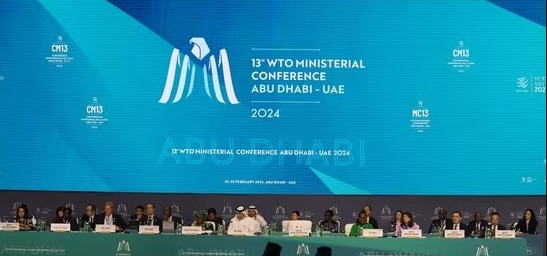Diplomatic crisis alert! Thailand replaces its WTO envoy after India's protest over remarks on rice procurement
Total Views |
Abu Dhabi, Mar 1: As a diplomatic crisis struck between India and Thailand, Bangkok has replaced its Ambassador to the World Trade Organization (WTO), Pimchanok Vonkorpon Pitfield, after New Delhi protested against her remarks on New Delhi's rice procurement programme.

During the consultation meeting on agriculture during the 13th Ministerial Conference here, the Thai ambassador had accused India of using food grain stocks procured by the government for a public distribution system to capture the export market for rice. These comments by the Thai envoy were appreciated by some representatives of rich nations including the US, and Australia among others, angering the Indian delegation here.
Following this, India lodged a strong protest with the Thai govt and commerce and industry minister Piyush Goyal taking up the matter with USTR Catherine Tai and EU executive vice-president Valdis Dombrovskis, making it clear that the language and behaviour were unacceptable.
Creating a diplomatic storm, the Indian delegation refused to participate in some deliberations in groups where a representative from the Southeast Asian country was present.
Thailand is the biggest competitor of India in the global rice market. While India is at the top, Thailand is the second biggest exporter followed by Vietnam. Thailand is also a member of a 19-nation group of agriculture exporters called Cairns group. Other members of the group include Argentina, Brazil, Australia and Indonesia.
The facts of the Thai envoy to WTO were incorrect as she accused New Delhi of exporting 40 per cent of the rice procured for PDS.

What did the Thai envoy accuse India of?
During the consultation meeting on agriculture during the 13th Ministerial Conference here, the Thai ambassador had accused India of using food grain stocks procured by the government for a public distribution system to capture the export market for rice. These comments by the Thai envoy were appreciated by some representatives of rich nations including the US, and Australia among others, angering the Indian delegation here.
India lodge protest
Following this, India lodged a strong protest with the Thai govt and commerce and industry minister Piyush Goyal taking up the matter with USTR Catherine Tai and EU executive vice-president Valdis Dombrovskis, making it clear that the language and behaviour were unacceptable.
Creating a diplomatic storm, the Indian delegation refused to participate in some deliberations in groups where a representative from the Southeast Asian country was present.
Thailand is the biggest competitor of India in the global rice market. While India is at the top, Thailand is the second biggest exporter followed by Vietnam. Thailand is also a member of a 19-nation group of agriculture exporters called Cairns group. Other members of the group include Argentina, Brazil, Australia and Indonesia.
The facts of the Thai envoy to WTO were incorrect as she accused New Delhi of exporting 40 per cent of the rice procured for PDS.
Thailand replace its WTO envoy
"The Thai Ambassador has been replaced. She has ridiculed India's public stockholding programme," according to the source quoted by ANI. It has been also been learnt that Pitfield will be replaced by Thailand's Foreign Secretary.
It is pertinent to mention that the share of Indian rice in the global market has gone up and India has put restrictions on these exports which has angered western nations. Therefore, developed countries have been trying to paint a picture that India was distorting global trade by selling subsidised foodgrain in the international market, which is not the case.


